Disclosure: Meeple Mountain received a free copy of this product in exchange for an honest, unbiased review. This review is not intended to be an endorsement.
It is unfortunate when I find myself writing an overview or a buyer’s guide. Basically, my job here is to say what a thing does and whether you should buy it. Part of what makes games is that like many art forms, novel and creative ideas built from brute mechanisms become more than the sum of their parts. One of the great pleasures of the hobby is finding something that does this.
This is unfortunately not the case with Great Western Trail: New Zealand (NZ). It is an assemblage of Great Western Trail parts. It’s a bricolage, in the most derivative sense.
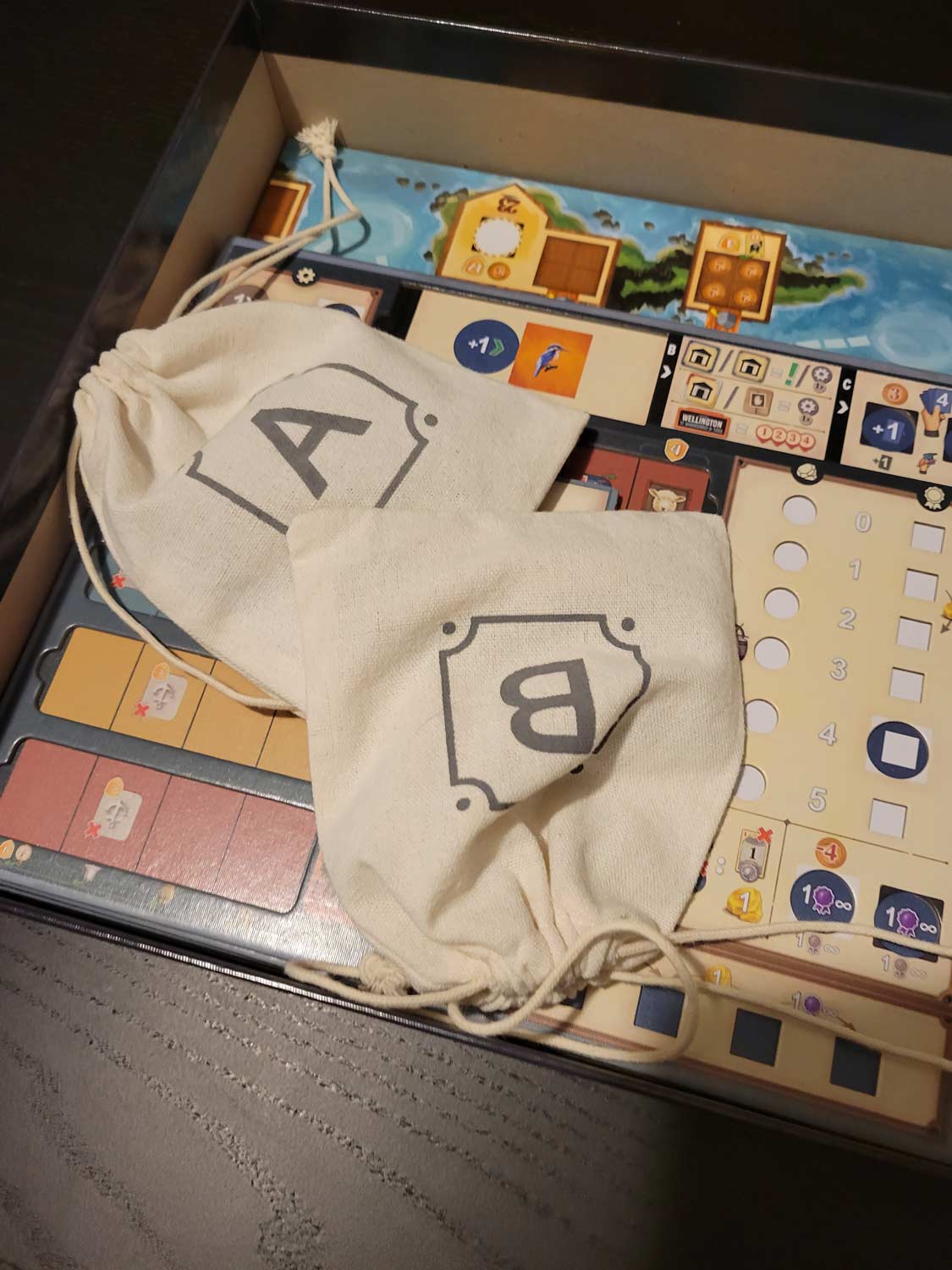
Where I found the previous entry in the trilogy of games, Argentina, to be an interesting iteration on the system that improves and adds more depth while still maintaining the competitive edge of the original game, NZ opts to simultaneously make the game more mechanically complex and opaque. You’re also in New Zealand, if that’s your bag.
I’m going to assume some familiarity with the system, but I’ll hit a few overview points as I go.
Let’s start with the deck. Great Western Trail is one of the few game systems where I find deckbuilding to be a tolerable mechanism. I’ve never much enjoyed managing probability engines in card form. In the two previous iterations of this design, optimizing and whittling your deck to a well-oiled piece of money generating machinery was one of the pleasures of the game, precisely because it was sometimes a trap. Often you wanted to focus on grinding out points with a suboptimal deck because winnowing uses up precious resources.
That pleasure and capriciousness is mostly absent in NZ. This version of the game leans much harder into the deckbuilding, meaning you’re going to be building larger decks and attempting to cycle them more: bog standard deckbuilder stuff. There are rewards on the board that grant you more mandatory cards, which result in a larger deck. At the end of my first game, my deck had a whopping 7 objective cards and 5 of the special cards that you get for doing various actions.
The game features a new type of delivery, sheep shearing, where you can turn in cards for money at specific buildings on the map. This allows you to cycle your deck a little more, and infuses you with more cash. There are also special wool delivery locations that function the same as the delivery locations in this game and other games in the series.
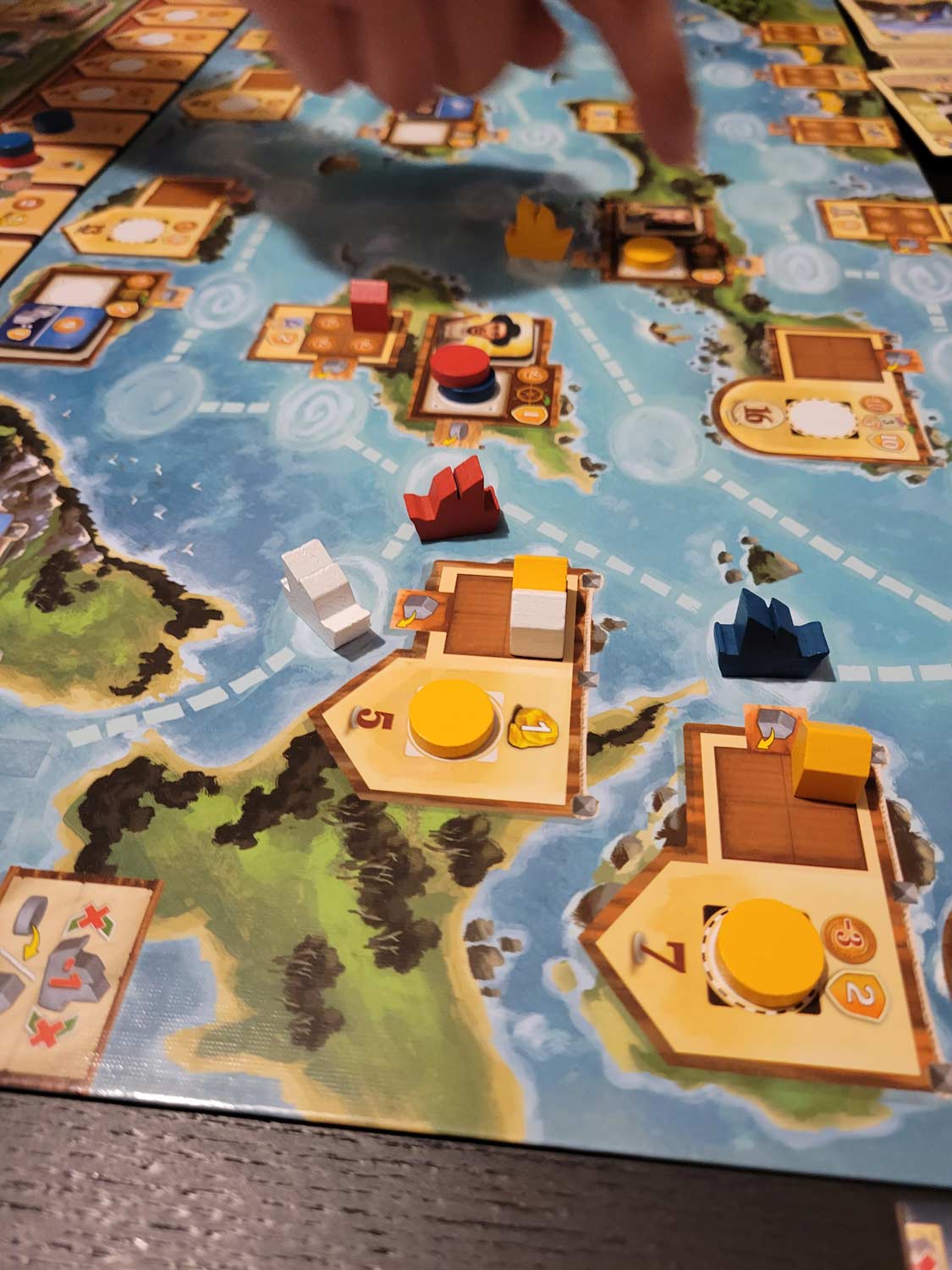
Finally, this game features a mechanical throwback to the first expansion to Great Western Trail, Rails to the North, where the singular train track of the series becomes a series of tracks with different routes that lead to different bonuses. Here, it is a boat track, but you build little warehouses and move a little boat around instead.
That’s the vast majority of the differences between this game and the original. There are some other smaller mechanical tweaks that won’t interest anyone but diehard GWT-heads, so I’ll leave them out, and explain what this game does that I found so frustrating.
For those unfamiliar with the series, I’ve described it as an action queue building game. There’s a map with a series of action spaces, and you travel along taking actions in a sequence, hoping that the sequence is efficient enough to win you the game. Along the way, you add more actions to the sequence in the form of buildings, which allows you and other players to operate more or less efficiently. For your opponents, they will have to use up movement points crossing your buildings, sometimes paying small tax; for you, you get to add more powerful actions to your personal sequence and benefit from said taxes.
In previous iterations of this design, the game was all about trying to see what the possibilities of the frontier were. It models the single-minded obsessiveness of 19th century America, where everyone was fixated on trying to speculate on a market and get rich (at least that’s how I read it). Sometimes your grand get-rich vision is a mirage, because you failed to see the right opportunities. Sometimes you strike gold.
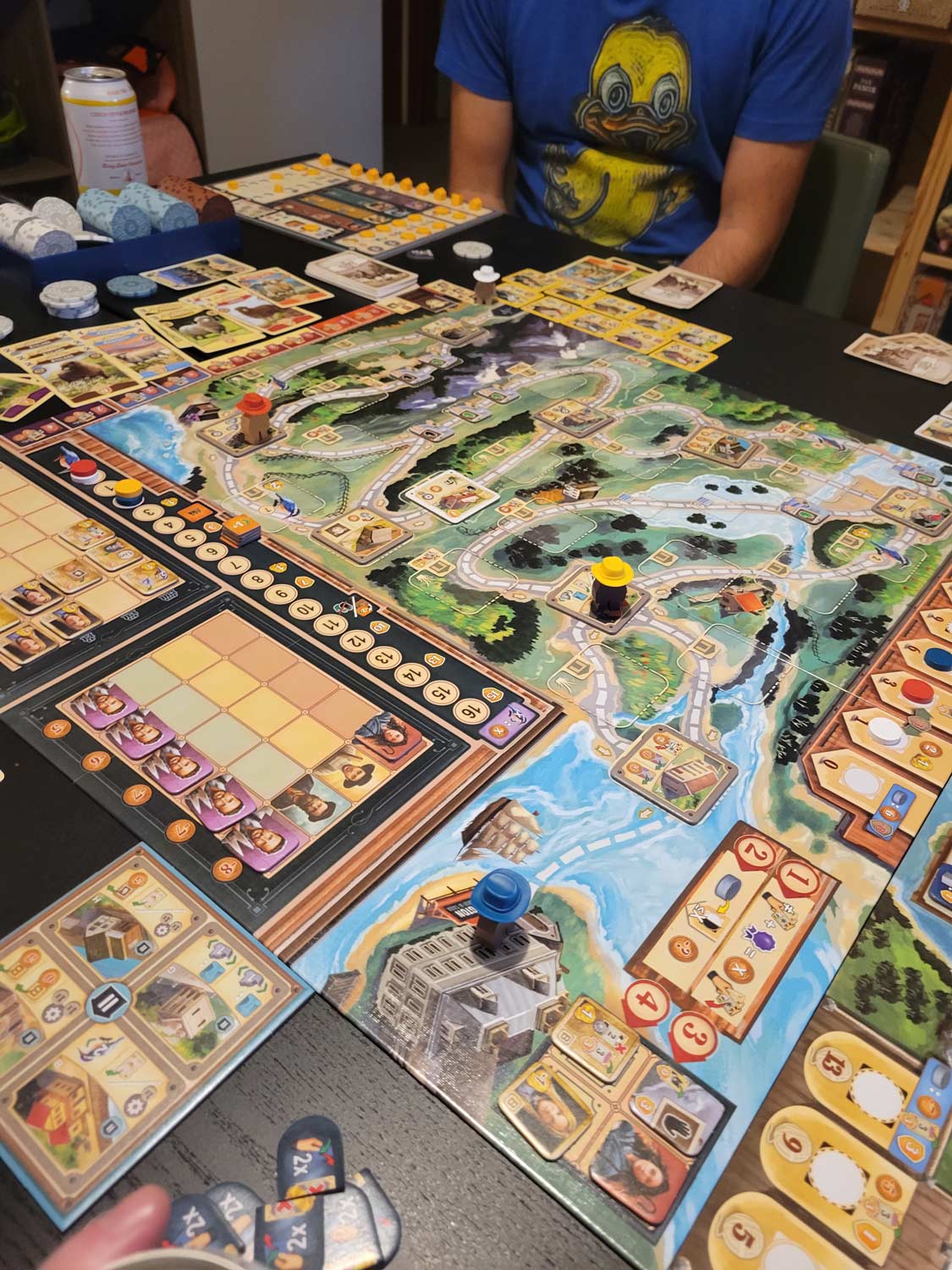
In NZ, everyone simultaneously strikes gold and doesn’t. The bloat of buildings, action queue, bonus tiles, upgrades, a split market, deckbuilding cards, etc. results in a plethora of options that are balanced to the point where it doesn’t really feel like anything you do matters. It’s easier to travel along the queue. Players building buildings isn’t as much of an impediment as it was before. Money is easier to get, or harder if you choose certain strategies, but it doesn’t feel as impactful—there are more ways to get points that don’t live or die by your budgeting right down to the last dollar. The game timer/job market, which was one large timer before, is now split into two markets, which results in the game losing its frantic pacing.
What you are left with is a game with lots of cute little mechanisms to where it’s not totally apparent how you won or lost at the end. In our games, often players were within a few points of one another, in spite of pursuing different strategies. Conflict and tension over particular workers didn’t amount to much.
Frankly, it’s a bummer, because this entry in the series feels like a stark reminder that board games are a business, baby. You’re paying for a bit of Great Western Trail IP, without any of the signature sauce that makes it great.
I suppose if you’re a newcomer to the Great Western Trail series, the game is probably fine. If you’re a fan, I doubt you’ll get as much out of it. For me, it was a disappointment.


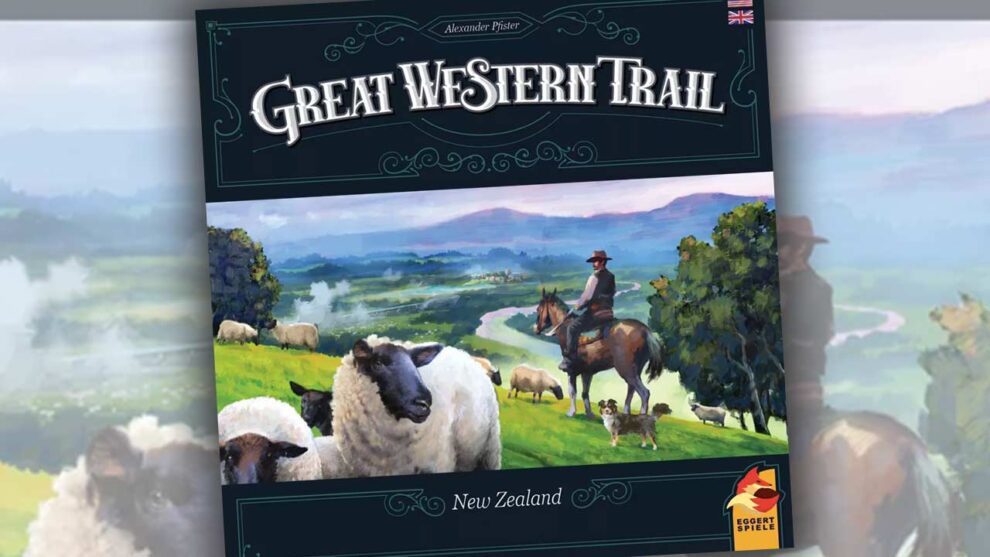


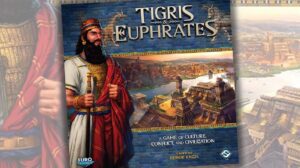
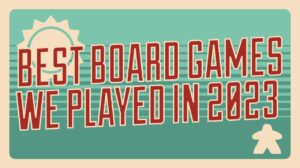





Great analysis. I had a similar take-away and it’s honestly jarring seeing how some years later, so many people seem to prefer NZ.
I guess more vibrant colors and feel-good mechanics really do sell.